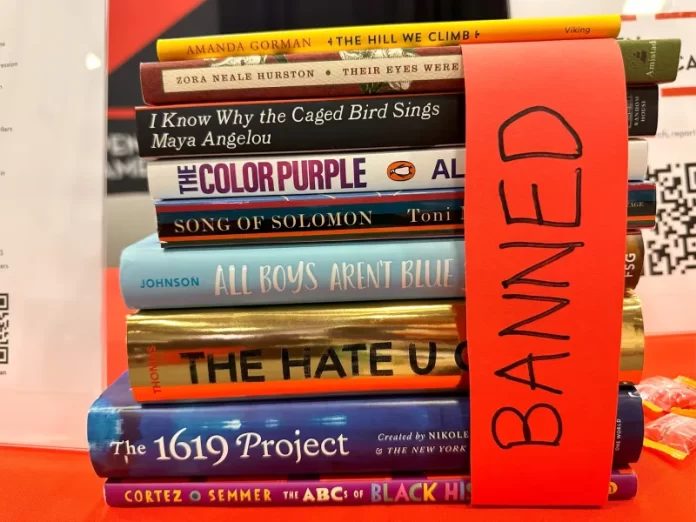
By Ariyana Griffin, The Afro
Banned Books Week, recognized each September, was founded by library activist Judith Krug in 1982 as a protest to the increase in censorship of literature. Krug believed that bans on books massively violated the First Amendment, freedom of speech.
Books are typically banned from schools and libraries for including content that contains “graphic violence, expresses disrespect for parents and family, is sexually explicit, exalts evil, lacks literary merit, is unsuitable for a particular age group, or includes offensive language,” according to the Free Speech Center at Middle Tennessee State University. Books are also often removed due to sexual orientation and race related topics.
The American Library Association’s Office of Intellectual Freedom (OIF) reported that “the number of titles targeted for censorship surged 65 percent in 2023, compared to 2022, reaching the highest levels ever documented by OIF in more than 20 years of tracking: 4,240 unique book titles were targeted for removal from schools and libraries.”
This month, in honor of Banned Books Week, to be celebrated Sept. 22-28, the AFRO spoke with an African-American book publisher on the issue.
Robert Curry, CEO of Curry Brothers Publishing, expressed that it is essential for Black stories to be told.
“The legacy of our history is important,” Curry told the AFRO. “Our motto is educating the world one book at a time – so we cannot allow that, we cannot stand for that, we cannot let that happen.”
Freedom to Read, an incentive with PEN America, fights against book bans across public schools in the United States. In 2021 they started tracking and collecting data on book bans in public schools by each school year to help fight against literature censorship.
“For me, and for many people, having access to books and literature is such an essential learning tool,” Kasey Meehan, program director for Freedom to Read at PEN America, told the AFRO. “The idea that we would prohibit students from accessing books – these are books that have been historically underrepresented in public schools to begin with.”
“We can celebrate all of the marvelous pieces of literature that are being caught up in these efforts of censorship – and one easy way to do that is to read a banned book,” said Meehan.
The list of thousands of books that have faced censorship challenges or outright bans include “The Hate U Give,” by Angie Thomas, censored for sharing an anti-police message; “Stamped: Racism, Antiracism, and You,” by Ibram X. Kendi and Jason Reynolds, banned for claims that it has “selective storytelling incidents;” “The Bluest Eye,” by Toni Morrison, for explicit content and a story line that addresses childhood sexual abuse; “The Absolutely True Diary of a Part-Time Indian,” by Sherman Alexie, for having profanity, derogatory terms and sexually explicit content.
The post Black authors speak ahead of Banned Books Week appeared first on AFRO American Newspapers.


